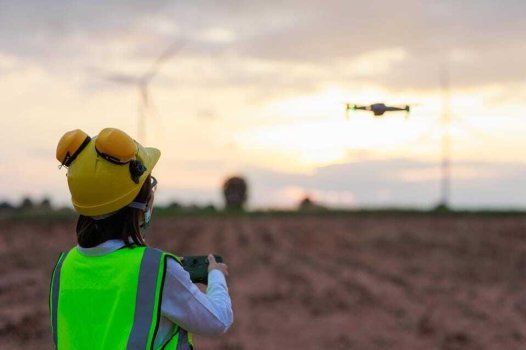Since we at SkyOp provide drone training curricula to many high schools and colleges, we are frequently asked what it takes to be a good drone instructor.
Small unmanned aircraft systems (sUAS) cross over many disciplines because of their high level of embedded technology. Frequently, my answer is that it would be helpful if the instructor had one or some of the following.
• A Federal Aviation Administration (FAA) part 107 remote pilot certification.
• Private or commercial pilot credentials.
• Amateur radio-controlled aircraft pilot credentials.
• Many hours logged as a drone pilot.
• Mechanical engineer experience.
• A software background.
• A photography and video background.
• Career and Technical Education (CTE) experience.
However, I’ve never met anyone who has all the previously mentioned skills. With that said, let’s review some of the requirements that are generally required to be a drone instructor.
Necessary Requirements For Drone Instruction
All educators and trainers should have an FAA part 107 remote pilot certification to effectively teach drone classes. They need to learn how to register a drone with the FAA, which is required for all drones flying weighing .55 lbs in the National Airspace System. This includes not only commercial drones but also recreational, education and government drones. (See the FAADroneZone for all drone registrations, waivers and airspace authorizations.)
Continue reading: https://www.forbes.com/sites/forbestechcouncil/2022/10/03/what-does-it-take-to-be-a-suas-drone-instructor/?sh=3473ed6b77c2
Small unmanned aircraft systems (sUAS) cross over many disciplines because of their high level of embedded technology. Frequently, my answer is that it would be helpful if the instructor had one or some of the following.
• A Federal Aviation Administration (FAA) part 107 remote pilot certification.
• Private or commercial pilot credentials.
• Amateur radio-controlled aircraft pilot credentials.
• Many hours logged as a drone pilot.
• Mechanical engineer experience.
• A software background.
• A photography and video background.
• Career and Technical Education (CTE) experience.
However, I’ve never met anyone who has all the previously mentioned skills. With that said, let’s review some of the requirements that are generally required to be a drone instructor.
Necessary Requirements For Drone Instruction
All educators and trainers should have an FAA part 107 remote pilot certification to effectively teach drone classes. They need to learn how to register a drone with the FAA, which is required for all drones flying weighing .55 lbs in the National Airspace System. This includes not only commercial drones but also recreational, education and government drones. (See the FAADroneZone for all drone registrations, waivers and airspace authorizations.)
Continue reading: https://www.forbes.com/sites/forbestechcouncil/2022/10/03/what-does-it-take-to-be-a-suas-drone-instructor/?sh=3473ed6b77c2

